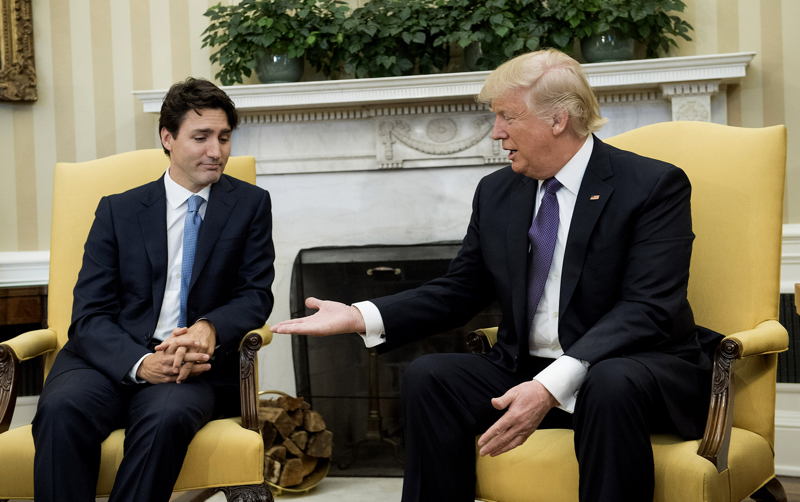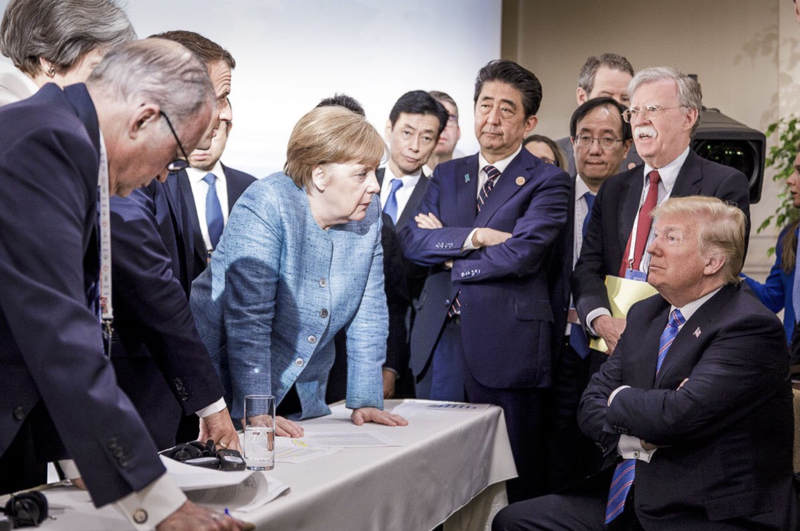The US personal care product industry is under fire, with the European Union (EU) and Canada and Mexico announcing plans to impose protective duties on American exports following the decision by the Trump administration to levy tariffs on steel and aluminium exports on these key trading partners.
However, in Europe, there is real concern that these tariffs could harm the EU’s powerful personal care product industry.
The EU executive, the European Commission, immediately published a regulation that will authorise its duties – they could be in force as early as 1 July.
European Commission President Jean-Claude Juncker said: "The EU believes these unilateral US tariffs are unjustified and at odds with World Trade Organisation rules. This is protectionism, pure and simple.”
The Canadian government has also been angered, and announced its own retaliatory duties, which it intends to impose from 1 July, having consulted on a shortlist of products.
A wide range of products have been listed for potential 10% duties. These include manicure or pedicure preparations, hair lacquers, pre-shave, shaving or after-shave preparations and organic liquid or cream preparations for washing the skin.

Canadian Prime Minister Justin Trudeau has rejected Trump's justifications / via Getty Images
The future of ongoing talks to renew the North American Free Trade Agreement (NAFTA) have taken a heavy blow from tariff row, with Trump’s justification of the American duties on national security grounds also rejected by the Canadian government.
Canadian Prime Minister Justin Trudeau told a national press conference that he rejected the justification as spurious: “Let me be clear – for the past 150 years, Canada has been the United States’ most steadfast ally.”
Cosmetics industry backlash
With the risk of American personal care product manufacturers losing significant exports, the US industry association the Personal Care Products Council (PCPC) has criticised the Trump administration’s policy, saying it and its member companies “remain strongly opposed to any policy that results in increased tariffs affecting international trade”.
The PCPC said: “The administration’s decision to impose tariffs on steel and aluminium imports negatively impacts our relationships with our strongest global allies.
“Inevitably, such increases will lead to countermeasures by trading partners, threatening access to markets that contributes to our industry’s global growth and competitiveness.”
Adding that cosmetics and personal care products companies rely heavily on open markets, the council said that “vibrant international trade is critical to the strength of our industry and enhances our ability to expand manufacturing and employment, and to create the innovative products that consumers around the world trust and enjoy.”
Trump's views on the tariffs across all industries:
Based on the Tariffs and Trade Barriers long placed on the U.S. & its great companies and workers by the European Union, if these Tariffs and Barriers are not soon broken down and removed, we will be placing a 20% Tariff on all of their cars coming into the U.S. Build them here!
— Donald J. Trump (@realDonaldTrump) June 23, 2018
The United States is insisting that all countries that have placed artificial Trade Barriers and Tariffs on goods going into their country, remove those Barriers & Tariffs or be met with more than Reciprocity by the U.S.A. Trade must be fair and no longer a one way street!
— Donald J. Trump (@realDonaldTrump) June 24, 2018
....We are getting other countries to reduce and eliminate tariffs and trade barriers that have been unfairly used for years against our farmers, workers and companies. We are opening up closed markets and expanding our footprint. They must play fair or they will pay tariffs!
— Donald J. Trump (@realDonaldTrump) June 26, 2018
Its concern is not surprising because America’s exports of these tariffs-targeted lines are significant.
Regarding Canada, the US exported US$55.8m worth of manicure or pedicure preparations in 2017, according to Statistics Canada, the government statistical agency.
As for hair lacquers, the US export haul to Canada in 2017 was $33.4m. Meanwhile, shaving, pre-shave and aftershave exports yielded $28.32m in receipts, and liquid and cream soap and other skin washing products netted an impressive $175m.
Historic European relations
With regards to the US exports to the EU, these are also significant regarding the lines targeted by Brussels’ retaliatory tariffs: with €152m worth of eye make-up preparations sold in 2017; €96.3m worth of manicure and pedicure preparations; €88m worth of make-up and skin care powders; and €8m worth of hair lacquers.
While some onlookers might see this as an opportunity for EU manufacturers to replace sales of American products, the EU industry association Cosmetics Europe is unhappy about Brussels’ reaction.
Malgorzata Miazek, spokesperson at Cosmetics Europe, said: “The European Cosmetics industry is deeply concerned with the fact that the cosmetic and personal care products were included in the list of products on which the EU rebalancing measures on US imports are based.
“It is important to recall that many North American brands of cosmetic and personal care products belong to European established and historical companies.”

There has been mounting tensions between Trump, Merkel and other G-7 leaders over trade disputes / via Getty Images
A survey of Cosmetics Europe members showed that more than 67% of US cosmetics exports targeted benefits EU companies, who either own the exporting US brands or, to a lower degree, outsource manufacturing to US subtractors.
“Sanctioning imports of these cosmetic products to the EU will therefore have in effect detrimental consequences for European companies and European jobs and growth,” she said.
Miazek also stressed that the US is a significant market for EU cosmetics in general, with currently an export surplus of 50% over imports.
“In case of any further escalation and US counter measures on EU cosmetics – which we sincerely hope would not take place – the EU to US export value of €3.2bn might be possibly severely damaged,” she added.
As a result, the association called on the EU to reverse its plans to impose tariffs on US personal care product exports: “Cosmetics and personal care products companies are truly global and dependent on open markets.”
Trump explaining why he believes tariffs will benefit the US
In the UK, Dr Christopher Flower, Director-General of the CTPA (Cosmetic, Toiletry & Perfumery Association), made similar comments.
He said: “Companies will be affected at different levels. For example, either because they own US brands exporting to the UK or because the company outsources manufacturing to US subcontractors.
“In addition, there are examples of US companies or brands that are actually manufacturing within the EU and where those products are subsequently re-imported into the EU; in this case a tariff could well damage EU manufacturing interests.”
He warned that the EU cosmetics sector has significant reliance on US imports because of the international integration of supply chains.
“It is difficult to see how this measure will protect the EU industry as such imports cannot be easily replaced,” he added.
This was especially the case for make-up, because of the number of different shades involved. The CTPA has shared its concerns with UK government officials, he said.
Meanwhile, the PCPC and others will be keeping an eye on retaliatory duties imposed by other countries because of the Trump administration’s aggressive trade policies.
For instance, Turkey imposed duties on US cosmetics exports on 21 June, reacting to American steel and aluminium tariffs.

Turkey’s Economy Minister Nihat Zeybekci / Getty Images
Calling the US tariffs “ill-advised”, Turkey’s Economy Minister Nihat Zeybekci said they mirrored “the additional costs Turkey faces due to the tariffs imposed on it by the US,” saying they would “protect Turkey’s interests, while encouraging dialogue.”
The USA exported USD17.3 million’s worth of personal care products to Turkey in 2017, according to international trade data.
As it stands, the US government seems disinclined to back down over its shift towards protectionism, considering imposing duties on EU automobile exports, which could spark additional EU retaliation.
In a television interview, US commerce secretary Wilbur Ross claimed that the US tariffs would force trading partners to reduce their own duties, as a quid pro quo solution to the growing international trade war.
“We’re going to fix the problem of protectionism around the world…by making it more painful for those countries to do bad practices than to do the right thing, which is to lower the trade barriers and lower their tariffs,” he suggested.
